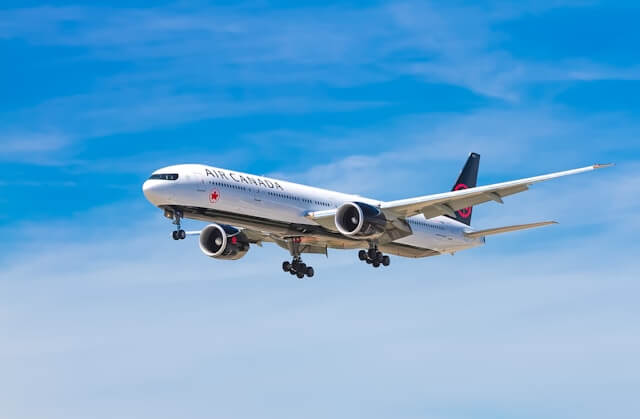The question “Is Spirit going out of business?” has been circulating among many curious minds. With the ever-changing landscape of the business world, rumors about companies shutting down can spread rapidly. Spirit, a well-known brand, has drawn attention recently due to speculation about its future. In this blog post, we’ll explore the origins of Spirit, its current status, and whether there’s any truth behind these rumors. Let’s dive in to uncover the facts.
An Overview of Spirit
Spirit is a name that resonates with affordability and accessibility. Whether you’re referring to Spirit Airlines, which has made a name for itself in the travel industry, or Spirit Halloween, a seasonal retail phenomenon, the brand has a strong presence in its respective markets. Over the years, Spirit has built its reputation by offering budget-friendly services or products that cater to a wide range of customers.
The company’s no-frills approach—whether in air travel or retail—has been a key to its success. Spirit Airlines, for example, is known for its ultra-low-cost model, which allows passengers to travel on a budget. On the other hand, Spirit Halloween has become a staple for holiday shoppers, offering costumes, decorations, and seasonal supplies.
Is Spirit Going Out of Business?
The question “Is Spirit going out of business?” requires a closer look at the brand’s recent activities. For Spirit Airlines, the company continues to operate flights and serve millions of passengers annually. While the airline industry has faced challenges due to rising fuel costs and post-pandemic recovery, Spirit Airlines has not announced any plans to close its doors. Instead, the airline is actively working on improving customer experiences, expanding its network, and maintaining its position as a top player in the budget travel segment.
Similarly, Spirit Halloween shows no signs of disappearing. In fact, the seasonal retailer continues to thrive each year, opening temporary stores across the country as Halloween approaches. It has become a beloved tradition for many families and remains a profitable business model.
What Is Spirit?
To understand the brand better, let’s delve into what makes Spirit unique.Spirit Airlines is an ultra-low-cost carrier based in Miramar, Florida, known for offering budget-friendly fares with a no-frills service model. Founded in 1983, the airline has grown to become one of the most prominent budget airlines in the United States. Its business model focuses on offering affordable base fares, while charging extra for add-ons like baggage, seat selection, and onboard refreshments. This approach appeals to price-conscious travelers who value savings over luxury.
Spirit Halloween, by contrast, is a retail chain that specializes in Halloween-themed merchandise, including costumes, decorations, and party supplies It operates as a seasonal retailer, opening pop-up stores in vacant spaces across the U.S. and Canada each fall. Since its inception in 1983, Spirit Halloween has become synonymous with the spooky season, offering everything from costumes and props to party supplies.
Current Owners and Production Status of Spirit
Ownership is a key factor in shaping a company’s direction, strategy, and overall stability. Spirit Airlines is publicly traded on the New York Stock Exchange under the ticker symbol “SAVE.” The airline is owned by shareholders and managed by a team of industry leaders. This structure allows Spirit Airlines to make strategic decisions based on market trends and shareholder interests.
What’s Special About the Company?
Spirit Airlines is a prominent player in the budget airline sector, known for its low-cost, no-frills approach to air travel. It offers extremely low base fares, making travel affordable for millions. The company operates under an “à la carte” model, where passengers pay for extras like seat selection, baggage, and in-flight services. While some criticize these fees, others appreciate the transparency and ability to customize their travel experience.
The airline mainly operates in the U.S., Latin America, and the Caribbean. Its focus on secondary airports often reduces congestion and allows for quicker turnarounds. These factors help Spirit keep operating costs low. Over the years, this strategy has enabled the company to grow rapidly and attract cost-conscious travelers.
Is Spirit in Trouble?
The question “Is Spirit going out of business?” stems from recent financial and operational hiccups. Like many other airlines, Spirit was significantly impacted by the COVID-19 pandemic, which led to a sharp decline in travel demand. The sharp drop in air travel during lockdowns led to significant revenue losses. Although travel demand has rebounded, recovery has been uneven, and challenges remain.
One major issue Spirit has faced is operational disruptions. In 2021, Spirit Airlines faced a surge of flight cancellations driven by staffing shortages and weather-related disruptions.These disruptions tarnished its reputation and left customers frustrated. While Spirit has since worked to improve reliability, such incidents underscore the vulnerabilities of running a lean, low-cost business model.
Future Plans of Spirit
Despite facing challenges, Spirit Airlines is actively evolving and pursuing new strategies to stay competitive.The airline has outlined several strategies to secure its future. Its potential merger with JetBlue is perhaps the most significant. This merger could create a larger, more competitive airline capable of challenging traditional carriers. However, regulatory approval remains a hurdle.
In addition to the proposed merger, Spirit Airlines is concentrating on expanding its route network to reach more destinations. The airline aims to add more routes to underserved markets, particularly in Latin America and the Caribbean. These regions offer growth opportunities as demand for international leisure travel continues to rise. By targeting these markets, Spirit hopes to strengthen its position in the industry.
Conclusion
So, is Spirit going out of business? The answer is no. While the airline has faced difficulties, it remains a resilient force in the budget airline industry. Spirit’s low-cost model, brand loyalty, and strategic plans are helping it navigate turbulent times.
With potential growth through its merger, network expansion, and fleet modernization, Spirit is working hard to secure its future. Challenges remain, but Spirit is well-positioned to adapt and thrive. For now, travelers can continue to rely on Spirit Airlines for affordable, no-frills flights.
